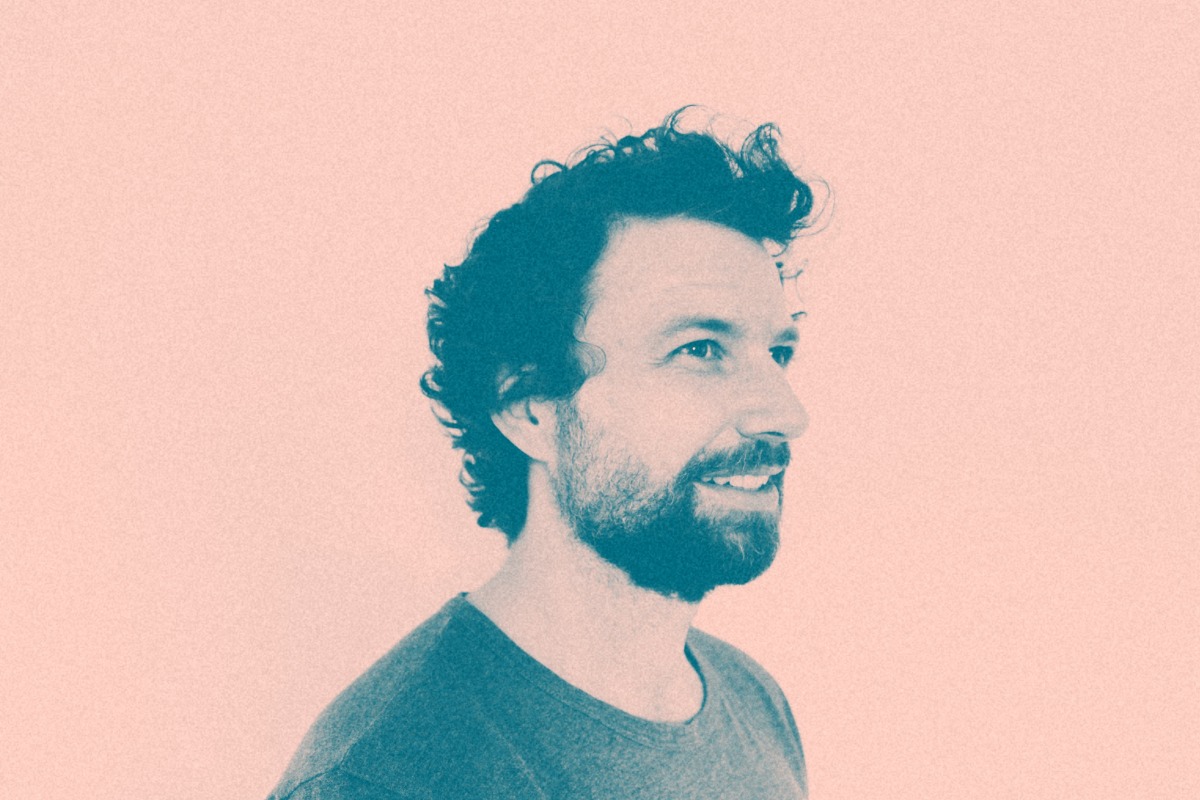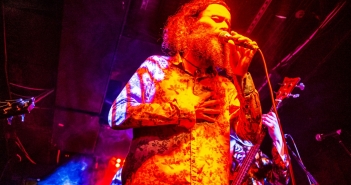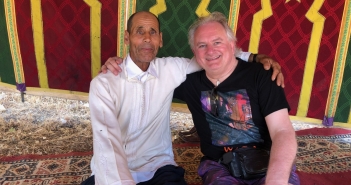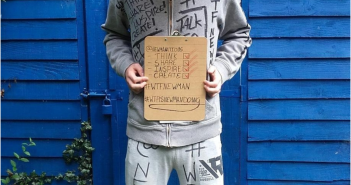I have nothing to say, and I am saying it. And that is poetry. As I needed it.
John Cage
‘Nothing to do, nowhere to be?’ This is the space where the best stuff – the best musical stuff – shows its face, ugly, beautiful or otherwise. At first glance, this appears quite simple but when does one actually have nothing to do and nowhere to be?
I could segue in a multitude of directions about the treadmill of living a contemporary life, or the long and deep impact of smart phones on our monkey minds, how instead of liberating us with ever more efficient apps and services they actually fill in any and all space in a day for idleness, daydreaming or any of these seemingly archaic pursuits.
In addition, in this day and age, would I not be crazy to at least tip the hat at any inherent privilege allowing one simply to exist and have nothing to do, nowhere to be, even temporarily?
But this misses what I’m attempting to get at. Anyone who has dabbled in the contemplative arts or meditation may give a knowing nod here. I have found that – and maybe this is the hardest part – I can have ‘nothing to do, nowhere to be’ many times throughout a day even when engaged in doing and going. It involves dropping back and just hearing, listening, feeling, playing; giving oneself the internal space, in the moment, to play and mess and see what happens. Dropping all the to-do lists, the constant planning, the goals, the dreams, the worries, the imagined conversations and arguments with friends and family.
For me, this is where the good stuff lives. Being in this space allows the drama of ideas, feelings, and connections to unfold itself and for the music to flow. With practice and hard work (it may come more easily for others) that space can be attained on a regular basis.
This is one part of my creative process. The internal part. The external part is actually carving out some time in the day when one can make use of the fruits of this space. This also is a challenge, for reasons I’ve discussed and many others.
This part is huge though. I’m sure this phrase has been uttered by many before me but you have to show up for creativity. Show up every day that you can. Show up for minutes or hours and then you will make progress. Show up in the space described above and you can make all sorts of progress. The direction may be unforeseen and not necessarily the progress you think is most pressing, but, there will be progress nonetheless. This is a process, and I address this to myself as much as anyone else.
Just a caveat, however, on occasion works can arrive fully formed in an instant, as if received from some wonderful ‘other’ creative dimension. In this case all one can do is try and document it as soon as possible before it dissipates into the ether once more. When this happens it is truly magical, but it is hard to rely on this source so, to move forward, a process must be developed.
I have been playing the guitar and making music in my own little way since I was eleven years old. Previously, I had wrestled with the piano for a few years, with mixed results. I certainly enjoyed the sounds, getting familiar with melodies and harmony, but at that age I could not relate to the music that I was being taught. It was the height of Grunge so I was deep into Nirvana, Pearl Jam, Alice in Chains, Soundgarden, and also bands like Radiohead. I was also discovering the old guard, The Beatles et al.
Almost immediately after my piano lessons ceased I picked up my father’s old nylon-string guitar and started tinkering with it. My father was a dab hand at a Beatles number and could certainly entertain for an hour or two into the wee hours at a party. He showed me the basic first position chords, plus one jazz number, ‘The Girl From Ipanema’ and one Classical piece, ‘Romanza.’ With these great standards of the guitar canon, he set me on my way. The guitar seemed so accessible in comparison to what I had been doing with the piano. My thoughts on this have changed considerably since then but that is another article in itself. Plus there was the notion that I could learn songs that I was listening to. Eleven year old mind well and truly blown!
In addition to all that, and maybe more importantly, the vibrating strings of the guitar seemed to hold a hypnotic power over me. Everything else would fade away and I would be completely zoned in. Whether it was me or someone else playing the instrument. Even very basic chord changes or musical parts would and, I’m happy to say still do, have that effect on me. The sum total of the sounds, the feel, even the look of the fingers dancing on the fretboard, or hands making all sorts of strange, contorted shapes would transfix me, entirely, completely. I was addicted.
I have found that the guitar, or playing music in general, is therapeutic in many ways. As I grew up I would actually process my emotions on the instrument. Some could call it ‘self-soothing’ or something approximating that (as a new father I am really getting to know that term, happy face emoji).
All the mixed up emotions of teenage years (or adult years) could be shaped into some form of tangible sound that I could sit with, more easily, until it had passed through me. A friend recently said to me “music is what emotion sounds like” and I think that I tapped into that early on.
But, let me return to that eleven year old. Very quickly I realised that I was interested in making my own bits of music. Whether an interesting chord change, phrase, melody, finger picking pattern, these little ideas would come out whenever I sat down with the instrument and had some time to breath.
Calling these creations ‘music’ may be a stretch. They were under-developed ideas based more on the arrangement and structure of the instrument than a clear delineation of a musical idea, and even then I struggled to finish a piece. Enjoying a sense of completion still comes hard for me. Beginning can be just as hard, and yes, the bits in-between can be hard too!
What I discussed in the first few paragraphs is the beginning. Giving one the space and time to create and play. The ideas then arrive. The middle part is where the craft comes in. Developing techniques for this is certainly an ongoing process, but generating material from a seedling idea is something that can be honed. With all the music notation software and digital recording platforms available one can take a very basic idea and stretch it, shrink it, chop it up, layer it, reverse it, invert it, amongst other things, and, this is the magic part, hear it back immediately. How did the greats ever do anything before the advent of computers?!
Finishing a piece is another challenge, especially for anyone with any perfectionist tendencies. Letting something go, warts and all, into the world, is an exercise in showing your vulnerabilities. I don’t find this straightforward. It is difficult to put out work when you know the standard that is already available.
Also, knowing that sweet spot when a work is ready to let go of is a dark art in itself. I have only released a tiny percentage of all the music that I have composed. Much of it is forgotten, a lot of it sits in hard drives or old laptops, and some is still is in my head. And that is ok. What remains is an archive of ideas that I can dip into when and how I need them.
Over the years I have prioritised the technicalities of music over the emotional content. I have often been lost in the exhilaration and energy of music, while over-looking subtleties and nuances. I have been self-indulgent and egotistical. However, amidst all this, progress has been made and I have found moments of success on my own terms.
This is a process, and I say this to myself as much as to anyone else.
Instagram: https://www.instagram.com/donalgunne/




